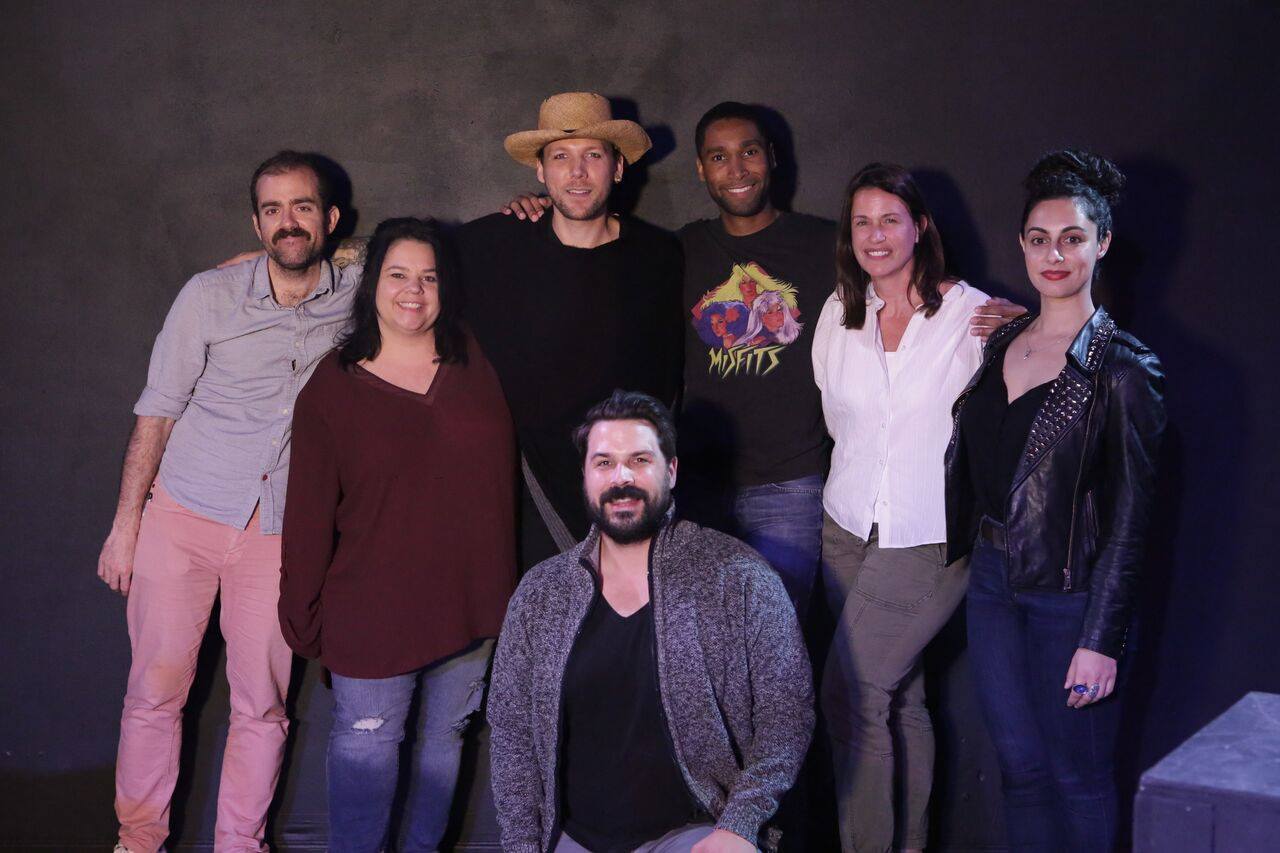“Do you always carry a notebook with you?” my friend Stuart asked, nodding towards what was tucked underneath my right arm. I smiled. “When I got something on my mind, yeah.” We were both checking audience members in at the door of Los Globos, a bar in Silver Lake which hosts The Moth’s open mic every other Tuesday night. He, with a trained eye checking off names on a printed out list of RSVPs, I, trading my notebook for a rubber hand stamp in the shape of the show’s namesake. “After someone complained we were using a butterfly, we had this one made up,” Stuart added, tapping his index finger atop the stamp’s pair of wings printed on its handle. While we greeted each person at the door, we traded stories with each other, broken up by the intermittent stream of faces and the exchange of money. Fitting, that, even after setting my notebook down on the red vinyl seat behind me, I couldn’t help but keep writing out loud. I had a lot on my mind, after all.
Currently, I’m preparing a story for my first GrandSLAM with The Moth. Different from their StorySLAMs, open mics where anyone from the audience can go up and tell a story, I know the stage at The Regent Theatre is waiting for me. This show, made up of winners from previous StorySLAMs, are each given an allotment of time to craft an original story: Five minutes, which can go by in an instant. I’ve discovered, in the relatively short time that I’ve been working on storytelling, that a simple phrase spoken in the moment can speak volumes as opposed to the written word. Sharp observations can cut deeper than a paragraph of prose, and eases up on the pressure you feel on stage when you have to deliver a story under time. Storytelling also has the benefit of having the embodied vessel of the experience (the storyteller on stage) imbuing the story with a built-in reference for the audience.
Trusting what truly needs to be said, is always a balancing act. I have a habit of writing too much. I’m far too generous with my adjectives and can often get carried away (as blog posts are often want to do). Storytelling, as opposed to literature, has the unique imperative of requiring one strip away all artifice to make themselves truly effective on stage. If you allow your story to become impenetrable to your audience by having moments feel overly engineered as opposed to “in the moment,” creating a sense of intimacy between you and your listener can become more difficult than it needs to be. Sometimes, habits that work for writers at their desks, need to take a backseat upon switching modes of presentation.
On stage at “Bada Bing Bada Boom: True Stories Told for Cash” at The Actor’s Company; West Hollywood, October 4th, 2018. Photo by Melanie Chapman.
I experienced this sense of disconnect during a performance of mine at “Bada Bing Bada Boom: True Stories Told for Cash” last Thursday night, where I was invited up to compliment the lineup of invited storytellers. Perhaps due to short notice, I performed a story I had already written, its beats sharpened over years of telling it before. Instead of feeling comfortable on stage, I felt I had lost a step in revisiting it in front of an audience, choosing to rely on what had worked before as opposed to finding fresh perspective on what might work “now.” I was able to execute the beginning, middle and end, but felt some invisible energy was missing in the spaces between. After sitting back down, I was inspired by the others who went up, able to connect with the audience by relating their stories to their current, tactile realities. It was that missing energy, linking their pasts with the present in an effortless, unrehearsed way.
Looking back, a lesson for me would be that, you can always find new opportunities to shake up an old story by straying from what feels safe towards what feels real, what activates your mind behind the microphone. That’s where those crucial connections with the audience take place. Until then, as I wait for my impending GrandSLAM, I’ll return to my notebook (acting as my mousepad at the moment) to whittle away what needs to be said and what I can stand to lose in the process.
Honored to share the stage that evening at “Bada Bing Bada Boom: True Stories Told for Cash” at The Actor’s Company; West Hollywood, October 4th, 2018. Photo by Melanie Chapman. (From left to right: Yours truly, storytellers Laura House, musical guest Zachariah Griffin, Jesse Brune-Horan *seated, Navaris Darson, Kris Crenwelge & Roxy Shabestari. Special thanks to Christopher Brune-Horan for starting the mic!)



